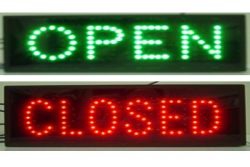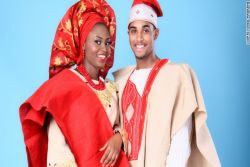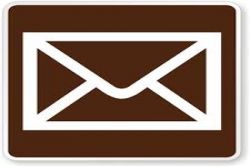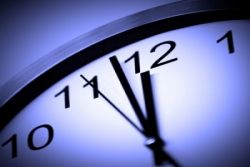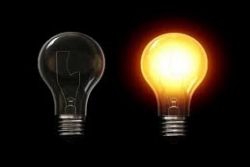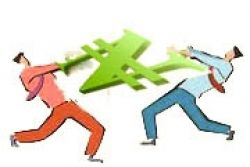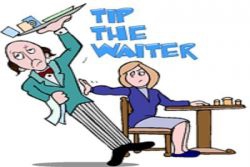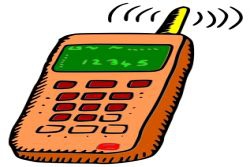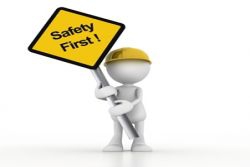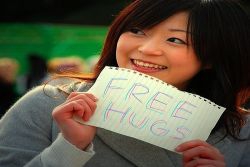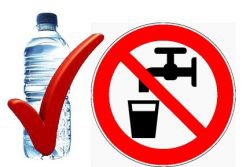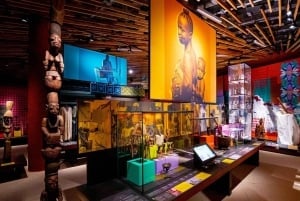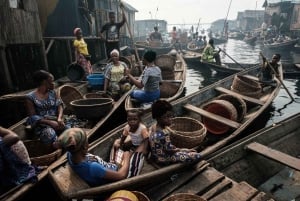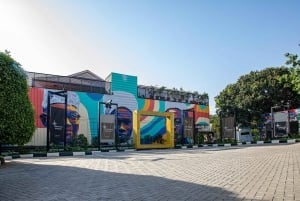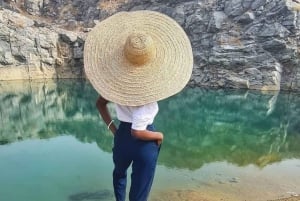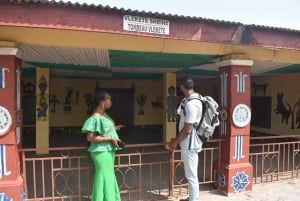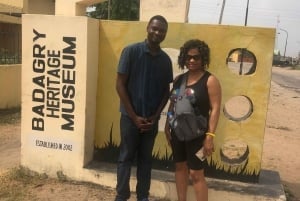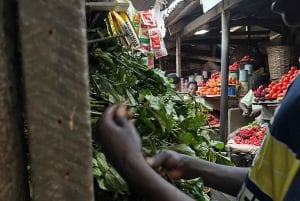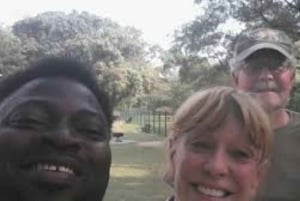Practical Information
At a Glance
-
Location: Between tropics of Cancer and Capricorn, on Gulf of Guinea. Neighbouring countries: Benin, Niger, Chad, Cameroon. Area: 923,768km2.
-
Altitude: Rising to 2,419m at Chappal Waddi, on Cameroonian border. Terrain: southern lowlands merge into hills and plateaux in centre; mountains in southeast; plains in north.
-
Climate: Tropical in south; arid in north.
-
Status: Federal republic.
-
Government: Bicameral presidential system.
-
President: Goodluck Jonathan (since 2010).
-
Capital: Abuja (moved from Lagos in 1991); population: 1.4 million approx.
-
Other major cities: Lagos (population 9 million officially; more likely to be 13–17million), Kano (9.3million approx), Port Harcourt (3.5million approx).
-
Administrative regions: 36 states and one Federal Capital Territory.
-
Population: 155,215,573 (2011 est).
-
Birth rate: 35.51 births per 1,000 population (2011 est).
-
Age structure: 0–14 years, 40.9%; 15–64 years, 55.9%; over 65, 3.1% (2011 est).
-
GDP per head: US$2,600 per annum (2011).
-
Economy: Oil provides 20% of GDP and 95% of foreign exchange earnings.
-
Official language: English.
-
Major local languages: Yoruba, Igbo, Hausa, Edo, Efik, Kanuri.
-
Religion: Muslim 50%, Christian 40%, indigenous 10%.
-
Currency: Nigerian Naira (N).
-
International airports: Lagos, Abuja, Port Harcourt, Kano.
-
International telephone code: +234.
-
Time: GMT +1.
-
Electricity: 220 volts at 50Hz; three-pin British-style plug.
-
Weights and measures: Metric.
-
Flag: Two vertical bands of green (representing forests and agriculture) divided by a band of white (representing peace).
-
National motto: Unity and Faith, Peace and Progress.
Safety
Your safety in Nigeria is likely to be endangered by getting around on the roads especially in traffic situations. Lagos is a very busy city where roads are choked up with averagely maintained highways and expressways, making road accidents quite common. Therefore, it is essential to always exercise caution on the roads while travelling by car. When traveling by public transport take a note of your driver's road sense just as you get into the vehicle. Avoid late night driving or being driven after dark.
Nigeria's coastline has extremely strong undercurrents and whirlpools, mostly in windy or rainy weather; this means that the water can be deceptively deep, so be very wary when swimming off the beaches and ensure you do not swim alone or without someone who knows your whereabouts.
Financial fraud is also very rampant in Nigeria. Advance Fee Fraud (AFF) is known as '419' in Nigeria, this means demand for and payment in advance which may be in the form of a loan or tax under the pretence of closing a transaction or deal (usually prevalent on the internet and a ploy to get a hold of your bank details). Never trust someone enough to leave a huge amount of money in advance for any service at all.
Be security conscious and vigilant. You can refer back to our health and safety page for more details.
General Customs
Greetings are highly valued in Nigeria and neglecting to greet someone is seen as a sign of disrespect. Before any conversation or a request to ask for directions, you will be expected to go through a range of greetings such as 'hello, how are you?' and a polite response is always anticipated. In Nigeria it is respectable to address people by their surnames and titles like Mr, Mrs, Miss, Chief, High Chief, Doctor, Barrister, Madam, Honourable and so on. The hospitalilty culture is great; a guest is always treated as a king/queen in Nigeria.
Tipping / Dash (restaurants, hotels, taxis, concierge, etc.)
In the event that someone helps you carry your luggage to your hotel room or a general 'kind' act towards you, you should at least offer a small tip to show your appreciation. In Nigeria tipping is not so common at upscale hotels and restaurants because service charge is usually included in the bill. Even in some cheap hotels, if someone brings food or drink to your room, a small fee would be added to your bill for 'room service'; it's totally up to you if you want to add any extra tip, it would certainly be appreciated, but not expected.
Also, if a taxi man helps carry your luggage and is generally interested in guiding you around town by getting you acquainted with places of interest, it's only right to tip the taxi driver for the help rendered, this should be at your discretion.
Local Time
In Nigeria the international time is GMT +1.
Business Hours
Most offices are generally open between 8am and 5pm, Monday to Friday, and sometimes a few hours on Saturdays. Government offices close at 4pm each day. Sundays are rest days. Every last Saturday of the month between 7am and 10.30am, traffic is not allowed on the streets as it is set aside as a Sanitation Day when people are supposed to clean up around them.
Post offices
The Nigerian postal service is run by Nipost (
www.nipost.gov.ng) and the website has a comprehensive list of the addresses of all post offices in the country and post codes. Post used to be painfully slow, but these days it has improved. It is recommended that you do not send anything valuable by local post – use a courier company. Stamps are in denominations of N20, N30, N40 and N50, and it costs about N120–150 to send a letter to Europe, which should take two to three weeks.
Opening hours are from 8am –4pm, Monday to Friday, and 9am - 1pm on Saturday. Some of the post offices offer services for EMS Speedpost and some are agents for Western Union.
Water (drinkable or not)
All tap water in Nigeria should be regarded as being potentially contaminated and is most definitely not suitable for drinking. Water used for drinking, brushing teeth or making ice throughout the country should have first been boiled
or sterilised; otherwise stick to bottled water. It is safe to buy properly sealed bottled water that is NAFDAC (National Agency for Food and Drug Administration Control) approved - you will know this by seeing a registration number on the bottle. Expect to pay around N50 for a 50cl bottle and N100-120 for one litre.
Phones
To get a line out of Nigeria, first dial 009 followed by the country code. Dialling into Nigeria, the international code
is 234. Note that the fax machine has become almost obsolete in Nigeria and fax numbers rarely work. International calls can be made directly from a few of the more upmarket hotels or mobile phone networks with the usual premium rate attached.
The use of mobile/cell phones (commonly referred to as GSM in Nigeria: Global System for Mobile Communications) has soared in Nigeria and in 2011 there were close to 100 million registered SIM cards, showing cell phones have pretty much replaced the landline system. If your own cell phone has international roaming, you should be able to pick up coverage, and you can buy SIM cards and top-up (recharge) cards everywhere.
The local providers include MTN, Glo, Airtel and Etilsalat. From 2011 all SIM cards have had to be registered on a central database. This means going to a network sales office, filling in a form, having your ID or passport photocopied, a headshot photograph taken and thumbs scanned.
Internet
Internet cafés (aka cyber cafés) are open everywhere in the country for easy and affordable internet access. However, speed and availability of the web varies depending on whether the café uses an international service provider via satellite or mobile internet service providers. Most Nigerians access the internet by using their phones as modems and in the cities the internet service providers have established radio connectivity.
Electricity
Electricity in Nigeria is 220 volts at 50Hz. You need a three-pin British-style plug to use your electrical appliance or an adapter/voltage converter. Power cuts are common all day, every day in Nigeria, though the Government is currently making plans to revamp the power sector. A torch and spare batteries are essential, though your hotel will have backup diesel-powered generators on standby.
Bargaining / Haggling
There are so many markets everywhere in Nigeria. This is because the country's economic and social character is founded on trade. As in many other African countries, shopping from street-side vendors is common, especially in the metropolis.
Prices in shops and mini-marts are fixed, but in the markets everything is negotiable. The Yoruba and the Hausa tradesmen have their own accepted ways of bargaining. In all, it is expected that you offer about one-third of the asking price and move on from there until both parties (i.e the buyer and seller) have agreed on the price. Another method is reducing the price given by N100 and if the trader agrees you reduce it again by N100, this could go on for a while till the trader gets slightly offended and doesn't agree with the price, then that is the price that you would pay. However, for both methods, if you still think the price is too high for the item, walk away, and if you are not called back to continue the negotiations again, it therefore means that the amount is probably about right.
Dress code
The dress sense in Nigeria is distinctive and often elaborate, with vivid colours and unique patterns made out of Nigerian fabrics. Every ethnic group in Nigeria has their own style of dressing. For special occasions like weddings or similar events, there is always a glittering display of clothing, as we take pride in wearing our traditional attire also known as ankara, lace, damask, adire, etc. These materials are produced in the country and are tailor-made to suite the individual's personality.
Nigerians still wear jeans, tops, suits and everyday Western attire. You will see a lot of women in their gele (headgear), buba (traditional top), iro (traditional wrapper) and men with their agbada (long flowing top) and sokoto (traditional trousers).
Dressing well shows your level of importance and Nigerian people invest a lot in looking good by shopping for trendy styles. However you should remember that Nigeria can be really hot, so make sure that you pack strictly lightweight clothing or you could
shop for them on arrival.
Costs
Compared to most African countries, Nigeria is certainly not considered to be one of the cheapest. It is however possible to get around on a low budget of N6,000 day for one person, including local budget accommodaton, local food, and getting about using public transport. But if you are after some forms of comfort and adequate securtiy consider the prices below as an approximate guide with budgeting.
Hotels
|
|
Low $ |
Low ⦠|
Value $ |
Value ⦠|
Medium $ |
Medium ⦠|
|
|
|
|
|
|
|
|
|
Three Star |
$106.09 |
⦠|
$170.20 |
⦠|
$205.00 |
⦠|
|
Four Star |
$179.05 |
⦠|
$216.67 |
⦠|
$267.00 |
⦠|
|
Five Star |
$427.00 |
⦠|
$427.00 |
⦠|
$427.00 |
⦠|
Restaurants
|
Item |
Type |
US Dollars |
Naira |
|
|
|
|
|
|
Meal |
Inexpensive restaurant |
$10.00 |
⦠|
|
Meal |
For 2, mid-range restaurant, three-course |
$36.79 |
⦠|
|
Fast food meal |
McDonalds or similar |
$10.00 |
⦠|
|
Domestic beer |
0.5 litre draught |
$2.00 |
⦠|
|
Imported beer |
0.33 litre bottle |
$3.04 |
⦠|
|
Cappuccino |
Regular |
$4.00 |
⦠|
|
Coke/Pepsi |
0.33 liter bottle |
$0.75 |
⦠|
|
Water |
0.33 liter bottle |
$0.57 |
⦠|


